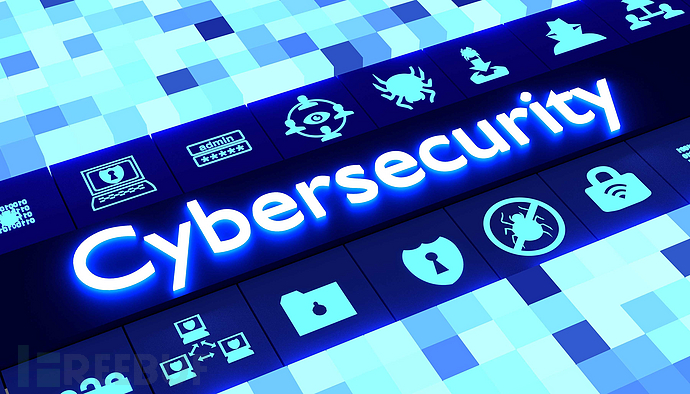Cybersecurity is a rapidly growing field with a high demand for skilled professionals. While having a degree in a related field can be beneficial, it is not the only path to a successful career in cybersecurity. Many individuals have successfully entered the field without a degree and have gained the necessary knowledge and skills through alternative means. In this article, we will explore several strategies and steps you can take to break into cybersecurity without a degree.
1. Develop a Strong Foundation of Knowledge
While a degree may provide a structured curriculum, you can acquire knowledge in cybersecurity through self-study and online resources. Here are some key areas to focus on:
- Networking and Operating Systems: Understand the fundamentals of networking protocols, TCP/IP, and different operating systems, such as Windows and Linux.
- Security Concepts: Familiarize yourself with essential security concepts like confidentiality, integrity, availability, risk management, and threat modeling.
- Cryptography: Learn the basics of encryption, hashing algorithms, digital signatures, and cryptographic protocols.
- Web Technologies: Gain knowledge of web technologies, web application security, and common vulnerabilities like Cross-Site Scripting (XSS) and SQL injection.
- Security Frameworks: Familiarize yourself with popular security frameworks, such as the NIST Cybersecurity Framework and ISO 27001.

2. Obtain Relevant Certifications
Certifications can demonstrate your knowledge and commitment to the field of cybersecurity. They serve as a validation of your skills and can make you stand out to potential employers. Here are some certifications to consider:
- CompTIA Security+: A widely recognized entry-level certification that covers essential security concepts and best practices.
- GIAC Security Essentials (GSEC): This certification validates knowledge of information security concepts and technologies.
- Certified Ethical Hacker (CEH): Focuses on ethical hacking techniques and tools used to identify and address vulnerabilities.
- Offensive Security Certified Professional (OSCP): A hands-on certification that tests your practical skills in penetration testing and ethical hacking.
- ISC2 Certified Information Systems Security Professional (CISSP): A globally recognized certification that covers various domains of cybersecurity.
3. Build Practical Skills
Having practical skills is crucial in cybersecurity. Here are some ways to build and showcase your skills:
- Capture the Flag (CTF) Challenges: Participate in CTF competitions to solve security challenges and gain hands-on experience in areas like web security, cryptography, and network exploitation.
- Open-Source Projects: Contribute to open-source security projects to expand your knowledge and demonstrate your ability to work with real-world security tools.
- Hone Your Technical Skills: Practice using security tools and technologies like Wireshark, Metasploit, Nmap, and vulnerability scanners in a controlled lab environment.
- Internships and Volunteer Work: Seek opportunities to gain practical experience through internships or volunteer work with organizations that focus on cybersecurity.

4. Create a Strong Professional Network
Networking is essential in any field, and cybersecurity is no exception. Here are some ways to build a strong professional network:
- Attend Industry Events: Attend cybersecurity conferences, workshops, and meetups to connect with professionals in the field.
- Join Online Communities: Participate in online forums, discussion boards, and social media groups focused on cybersecurity to engage with like-minded professionals.
- Connect with Peers: Reach out to fellow cybersecurity enthusiasts or professionals through LinkedIn or other professional networking platforms.
- Mentorship: Seek mentorship from experienced professionals who can provide guidance and support as you navigate your cybersecurity career.
5. Gain Practical Experience
Practical experience is highly valued in the field of cybersecurity. Here are some ways to gain hands-on experience:
- Lab Environments: Set up your own lab environment to practice various cybersecurity techniques and tools.
- Internships and Apprenticeships: Look for internship or apprenticeship opportunities with companies or organizations that offer hands-on experience in cybersecurity.
- Freelance and Side Projects: Offer your cybersecurity services as a freelancer or work on side projects to gain practical experience and build a portfolio.
- Contributions to Open-Source Projects: Contribute to open-source security projects to showcase your skills and practical knowledge.

6. Build a Strong Portfolio
A portfolio is an excellent way to showcase your skills and projects to potential employers. Here are some tips for building a strong portfolio:
- Include Relevant Projects: Highlight projects that demonstrate your ability to solve real-world cybersecurity problems.
- Document Your Contributions: Clearly describe your role and contributions in each project, emphasizing the skills and technologies used.
- Showcase Certifications and Achievements: Include your certifications, CTF rankings, and any other notable achievements in your portfolio.
- Keep It Updated: Regularly update your portfolio with new projects and experiences as you progress in your cybersecurity journey.
7. Stay Up-to-Date with the Latest Trends
Cybersecurity is a constantly evolving field, with new threats and technologies emerging regularly. It is crucial to stay updated with the latest trends and developments. Here are some ways to stay current:
- Follow Industry Blogs and News: Subscribe to cybersecurity blogs, news websites, and podcasts to stay informed about the latest industry trends and news.
- Attend Webinars and Conferences: Participate in webinars and virtual conferences to learn from industry experts and stay up-to-date with the latest advancements.
- Continue Learning: Enroll in online courses, attend workshops, and pursue advanced certifications to deepen your knowledge and skills.
- Join Professional Organizations: Become a member of professional organizations like ISC2 or ISACA to access resources, networking opportunities, and industry updates.

Conclusion
Breaking into cybersecurity without a degree is challenging but certainly possible. By developing a strong foundation of knowledge, obtaining relevant certifications, building practical skills, creating a professional network, gaining practical experience, building a strong portfolio, and staying updated with the latest trends, you can increase your chances of success in the field. Remember to be proactive, persistent, and continuously seek opportunities for growth and learning. With dedication and a passion for cybersecurity, you can pave your way to a rewarding career in this exciting and ever-evolving field.





